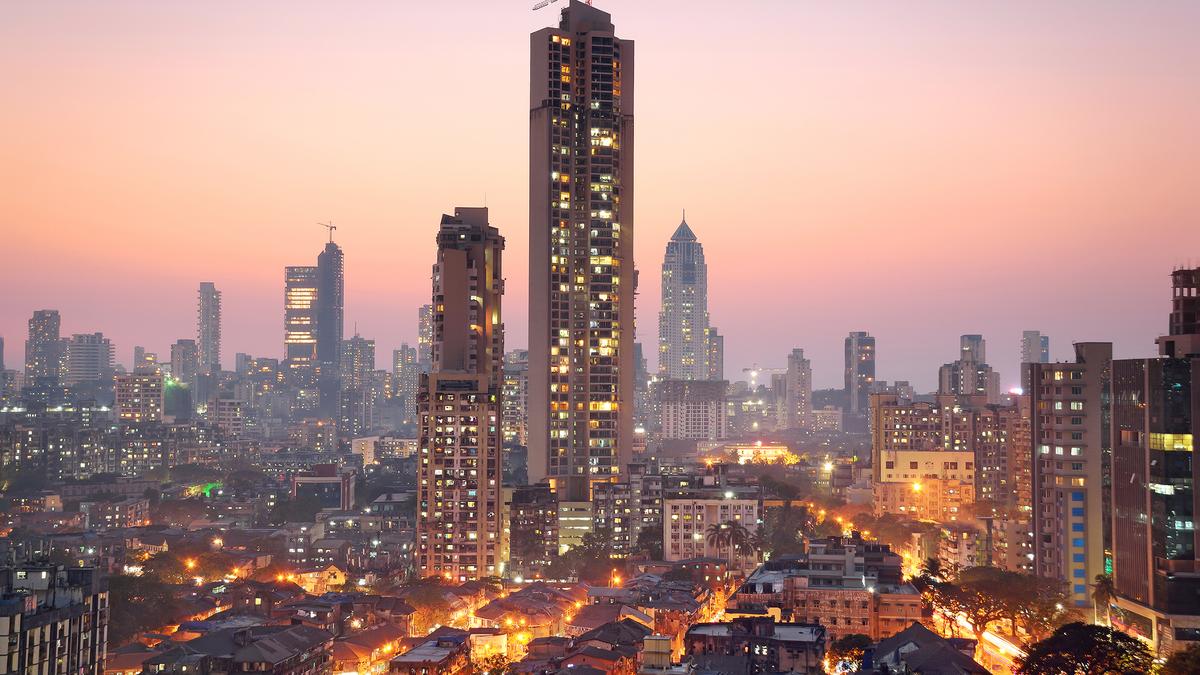Panoramic view of south central Mumbai – the financial capital of India – at golden hour showing vast contrast in the living conditions of people with dwellings of lower middle class in foreground and towers where elite stay in the far background.
India’s official data enumerators who survey households across the country to assess ground realities such as household spends, education and employment levels, have literally hit a wall – with the affluent classes living in gated communities and rarefied urban enclaves increasingly shutting the door on them and refusing to respond to surveys.
Concerned about this “big data gap” that is skewing the representation of socio-economic groups in official survey samples, and creating a distorted view of the population and the economy while denting the quality and utility of data, the Statistics Ministry has kicked off parleys to find a way to get high-income groups to open up for its surveys.
“We are here today to tackle the challenge that affects the accuracy of our surveys, especially non response from high-income groups, gated societies and residents of high-value houses. When these groups choose not to respond, we are left guessing, and guessing does not exactly lead to a good policy,” Geeta Singh Rathore, director general of the National Sample Survey Office (NSSO) said at an interaction with urban resident welfare associations (RWAs) on Friday.
“Without accurate representation of all social and economic groups, we risk skewed insights and policies that fail to address the need of entire population,” Ms. Rathore said.
Pointing to an alarming spike in non-response rates from affluent households to NSS surveys in recent years, Deputy Director General of the National Statistical Office’s Survey Design and Research Division Amitava Saha said that many people blatantly refuse to share information or allow enumerators’ entry into their complexes.
‘Non-response an urban phenomenon’
“Non-response to surveys is pre-dominantly an urban phenomenon, where it is rising faster than rural areas. People from higher income groups in rural and urban areas are more reluctant to participate in the surveys,” he said. This compels surveyors to substitute them with other households, which changes the intended composition of the sample.
Saurabh Garg, Secretary, Statistics and Programme Implementation Ministry also emphasised that the data collected by the NSSO impacts people’s lives on a day-to-day basis, for instance, through the interest rates set by the central bank which are linked to inflation trends. The inflation data, in turn, is calculated by factoring in the representative consumption basket of households as revealed by the Household Consumption Expenditure Surveys.
“We have to improve the representativeness of the data by improving responses from certain categories, especially the most educated category of households, where if I can put it that way, there have been concerns,” Mr. Garg said.
Another NSO official shared several instances of large residential complexes in affluent areas of many cities that simply refused NSS enumerators to enter their premises, despite several official efforts to impress upon them the nature of these surveys. “Even where such people respond, they share very little data, particularly in rich households,” the official noted.
Tamil Nadu Real Estate Regulatory Authority (RERA) chairman Shiv Das Meena said it is a real challenge to elicit responses from gated communities and the “so-called upper echelons of society”. He pointed to the irony that these sections are most vocal and critical about policies on social media, but are reluctant to share data in a structured manner to help frame policies, or even go out to vote during elections.
Published – September 20, 2024 10:17 pm IST
